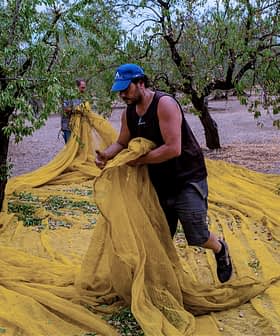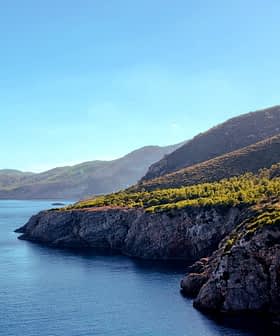Olive growers from southern Italy, where a Xylella fastidiosa outbreak has led to a major cull of trees and a ban on planting new ones, are seeking legal advice to see if they can challenge the European Union’s stance on tackling the disease.
Olive farmers have been up in arms in the Salento region for quite some time as the European Union deals with the tree disease which, its says, could threaten olive crops all over Europe if not properly contained.
As part of the process, trees have been ripped out of the ground and new plantings are strictly prohibited, much to the dismay of locals.
Not having the freedom to plant new trees is a condemnation of death to the territory.
But now, a group made up of Italian growers and others in the olive oil sector, Voice of the Olive Alliance of Manufacturers, is fighting back.
According to a press release on the organization’s Facebook page, representatives are meeting with lawyers to see if a challenge is possible in the European Courts of Justice.
The group claims Paolo De Castro, an Italian politician and EU member of the agricultural and rural development committee, is wrong and forcing a ban on new plantings is unfair on Salento.
“To remove the ban on replanting we are ready to resort to the European Courts of Justice, because it is an unfair measure towards Salento which is not effective against the containment of the bacterium,” said the group.
“In the next few days, the association will attend the first meeting with lawyers in this “battle for the survival of Salento.”
The association went on to say how Salento’s landscape, cultures and traditions are in jeopardy and action must be taken to protect the historic olive oil industry of the region.
Not having the freedom to plant new trees, is a “condemnation of death to the territory,” added the group.
Tender loving care — not culling
Meanwhile, the website Xylella Report said another project is instead focusing on caring for some of the area’s most ancient trees in a new experimental trial to fight against what they describe as the syndrome CoDiRo.
This is something Salento’s locals have known about empirically for around a decade and insist is a set of symptoms (not a disease) which cause the trees to quickly dry out and is not the same as Xylella fastidiosa.
The trial involves trees being observed by University of Foggia researchers and treated organically and is led by the provincial chairman of Copagri, an organization representing farmers.
Fabio Ingrosso told Xylella Report: “The olive trees that showed evidence of the syndrome are responding well. And only two months have passed. We are only at the third treatment and visually recording a net improvement.
“Our goal is not to cure the Xylella, but to strengthen the trees — weakened by years of the use of chemicals — to feed the soil and restore organic matter, so that the trees respond even in the presence of the bacterium,” Ingrosso was quoted as saying.
He also claimed the key reason for the research is to identify what products will allow the olive trees to return to their proper state of vegetation and stresses the experiment is using low or zero impact products labeled as fertilizers, bio-stimulants or are products already accepted in organic farming.
Aside from the Italian olive oil heartland, another Xylella fastidiosa outbreak has been cited on the French island of Corsica.







